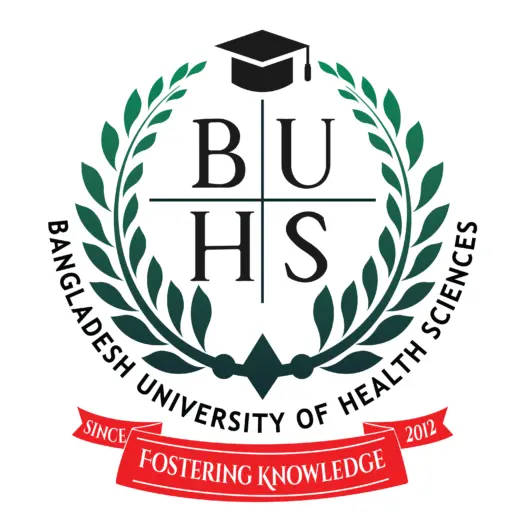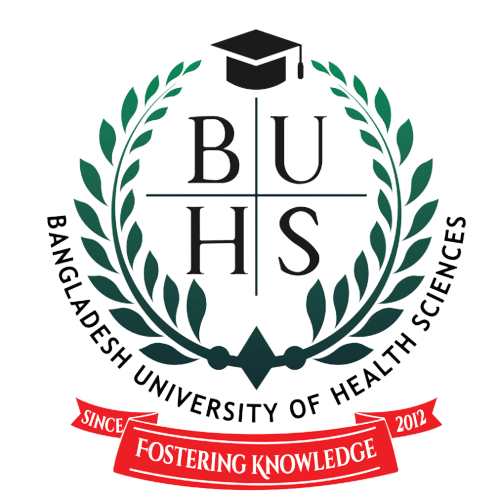MASTER OF SCIENCE (MS) IN IMMUNOLOGY
- Help the students to conceptualize the basic, in-depth and updated knowledge in different fields of Immunology in respect of theories, principles/techniques, and methodologies relating to other relevant specialties of biological science.
- Enable students to be efficient with high-level of critical thinking and analytical skills in different immunological methods on both theoretical and practical aspects to solve conceptual and quantitative problems in immunology by applying fundamental principles of advanced immunological techniques.
- Competent to demonstrate safe and acceptable skills in laboratory procedures and experimental design that would meet criteria of a good laboratory practice (GLP).
Help the students acquire leadership to plan, design and implement research by addressing different immunological issues and acquire knowledge of using essential tools needed to carry out biomedical research independently and / in team.- To enhance the skill of interpreting and communicating scientific concepts, experimental results and analytical data clearly and concisely with the appropriate bodies through written, oral, and interactive presentations.
- Help students develop curiosity and interest in making scientific investigations to enrich their personal integrity and realize the roles of immunologist in health sectors nationally and globally.
- Acquaint students with moral and ethical values to handle the laboratory analysis, results and research findings, maintaining the secrecy of internal policy and keeping dignity of patriotism.
The MS in Immunology has been introduced in Bangladesh University of Health Sciences as a flagship program since its inception with an aim to provide the students with a broad understanding of the complex field of immunology. It is a progressively demanding program among medical graduates and biomedical scientists globally. The MS in immunology program is a full-time, being conducted on a course and credit-based structure specifically divided into different integrated courses (21 courses for thesis group) and (22 courses for non-thesis group) that are accommodated in a total of 70 credits, completed in a minimum period of 18 months.
Forty credits of the total contents of the program encompass basic immunology, clinical immunology & immunogenetics, emerging infections, immunopathologic principles; (e.g, hypersensitivity, tumor immunology, autoimmunity), molecular virology & oncology, transplantation immunology, vaccinology, cell culture & stem cell biology, immunological diagnosis using advanced techniques and immunotherapy. Rest 30 credits of the program include basics of biostatics, advance lab biosafety, animal experimentation, bioinformatics, research methodology, bioethics, microbial biotechnology, genetic engineering, lab management, enzyme and protein biotechnology, advanced molecular biology, transfusion medicine. Immunological principles included in the program are being used extensively in the field of diagnosis as well as prognosis of a disease. MS in Immunology is a fully research- based program. Only and first Master Program in Bangladesh open for both the Medical /non-medical Graduates.
70 credits divided into 21 and 22 different integrated courses for thesis and non-thesis groups respectively; Duration of the program is 18 months (minimum). Once admitted registration of a student remains valid up to 3 years maximum. After three years, re-registration is needed to continue studentship.
Program commences as Spring and Fall session in every year (2 intakes per year)
Honor’s in Microbiology and Immunology, Biochemistry, Lab Technology or its equivalents from any recognized University; MBBS or equivalent degree from any Medical college recognized by BMDC; foreign students with equivalent qualifications are also eligible for admission. Minimum CGPA in Honor’s program must be 2.5 for admission in MS in Immunology.
Some of the most promising research being conducted now a day is in the area of Immunology. After successful completion of the MS program in Immunology, the deserving candidates may have a great role to play in the development of health care system throughout the world. Immunologist can be engaged in the academic institutions, diagnostic laboratories and biomedical research laboratories.
Job Opportunities are:
- Academicians in Medical Colleges & Universities dealing Life Sciences
- As Consultants in different Government projects & Public Health related national and international Organizations
- Research Officer/ Scientist in different research institutes at home and in abroad
- As Scientific Officer/ Consultant in private hospitals and different diagnostic laboratories

